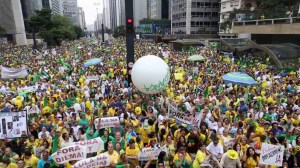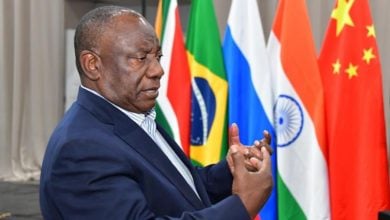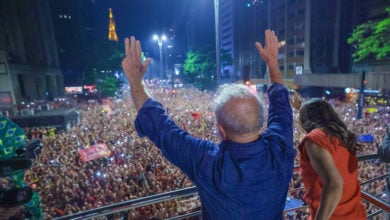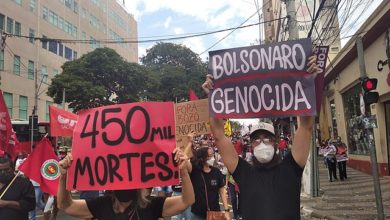
At this moment in Brazil, right wing maneuvers to try to take over the presidency and bury the Workers Party are escalating.
Since President Dilma Rousseff’s re-election in 2014, (when the right wing was infuriated because they thought they had a chance after the 2013 protests across the country), they have been trying to build upon one scandal after the other to destabilize the country and remove Dilma from power.
Dilma’s government has not demonstrated the same impact as Lula’s government before her. The country’s economy has slowed down, unemployment has grown, interest rates are going up. But no one believes that the right wing would be able to fix and bring “Lula’s time” back either.
The majority of those in the streets asking for Dilma to leave are rich white people with college degrees who make 10 times the minimum salary in the country (80 percent of Brazil lives off 2 times the minimum salary). This is not just me saying this, the polls done during the opposition protests are posted all around the Brazilian media. Everyone knows it. The Sao Paulo Association of Industries (FIESP), an organization of super rich CEOs, who supported the coup in 1964 and sponsored torture equipment for Sao Paulo’s police torture sessions and so many other things, were distributing filet mignon to the pro-impeachment protesters on Thursday.
The Workers Party, especially during Dilma’s mandates, tried to create some type of class conciliation by bringing to key positions in the government people who were clear enemies of it. They paved the way for these enemies to establish themselves in positions within the government where they could generate such crises. We are talking here about the PMDB, the party of vice-president Michel Temer, as well as the president of the house of representatives, Eduardo Cunha, and the president of the senate, Renan Calheiros. All three are in line to take the presidency if Dilma is impeached.
The president of the house of representatives, Eduardo Cunha, is the main one responsible for initiating the impeachment process back in early December last year. He has been implicated in the “Lava Jato” corruption scandals, where if found guilty, he can also lose his seat.
The latest event in these historical developments in Brazil’s history, was the attempt to arrest ex-president Lula. In a move designed for the media, Lula was taken from his home by the Federal Police to testify. A judge gave the unnecessary order to help news agencies make headlines to push for the coup, the same move they did back in 1964.
After that, Lula gave a speech saying his head is up and the struggle continues, and calling on people to help protect democracy and offering to travel the country in a campaign for it. Social movements also released calls to paralyze the country in case of an attempted of coup.
People from both sides went out to the streets and many cases of violence were registered. Between them, there were many attacks against union buildings, social movement headquarters; left parties, such as the Communist Party of Brazil and the Workers Party had their offices attacked.
A week ago, another order was issued against Lula, to arrest him in a “preventive manner.” Just before the weekend there were rumors that Dilma was going to nominate Lula as her Chief of Staff for the presidency.
Dilma’s action was a strong message to those promoting the coup. To bring Lula back to the presidential palace will not only increase hope that her government can grow strong and start acting with fewer compromises to the neoliberal policies and the opposition forces, it also creates a route for the left to fight for democracy in the country. The people want to see strong action from the government and the Workers Party. There is a unity in the country to fight for democracy if there is a strong leadership as well.
Lula’s imprisonment would just create a dark path for the country which has just moved out of a dictatorship (Brazil’s first direct elections for president happened in 1989). The same supporters of 1964 coup, the same media, politicians and businessmen, are backstage building strategies to stop the progressive changes initiated in the country by the Workers Party.
We are also watching a very similar development with what is happening in other countries in Latin America. A strong offensive from the right wing opposition who are trying to rewind the achievements obtained over the past 15 years or so.
Brazil hasn’t had the the same radical position and actions as its neighbors from the Bolivarian Revolution. But, for sure it has played an important role in supporting them by investing in local trade and taking a strong stand in favor of the region over imperialist interests.
It will be a strong hit for the region to have the country’s democracy attacked as it is right now.




